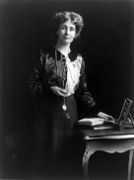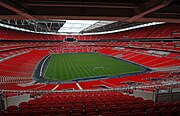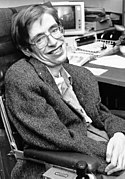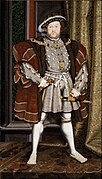Portal:United Kingdom
 |
 |

| |
The United Kingdom of Great Britain and Northern Ireland, commonly known as the United Kingdom (UK) or Britain, is a country in Northwestern Europe, off the coast of the continental mainland. It comprises England, Scotland, Wales, and Northern Ireland. The UK includes the island of Great Britain, the north-eastern part of the island of Ireland, and most of the smaller islands within the British Isles. Northern Ireland shares a land border with the Republic of Ireland; otherwise, the United Kingdom is surrounded by the Atlantic Ocean, the North Sea, the English Channel, the Celtic Sea, and the Irish Sea. The total area of the United Kingdom is 94,354 square miles (244,376 km2), with an estimated population of nearly 67.6 million people in 2022.
In 1707, the Kingdom of England (which included Wales) and the Kingdom of Scotland united under the Treaty of Union to create the Kingdom of Great Britain. The Acts of Union 1800 incorporated the Kingdom of Ireland to create the United Kingdom of Great Britain and Ireland in 1801. Most of Ireland seceded from the UK in 1922 as the Irish Free State, and the Royal and Parliamentary Titles Act 1927 created the present name, the United Kingdom of Great Britain and Northern Ireland.
The UK became the first industrialised country and was the world's foremost power for the majority of the 19th and early 20th centuries, particularly during the "Pax Britannica" between 1815 and 1914. At its height in the 1920s, the British Empire encompassed almost a quarter of the world's landmass and population, and was the largest empire in history. However, its involvement in the First World War and the Second World War damaged Britain's economic power and a global wave of decolonisation led to the independence of most British colonies. British influence can be observed in the legal and political systems of many of its former colonies, and British culture remains globally influential, particularly in language, literature, music and sport. English is the world's most widely spoken language and the third-most spoken native language.
The UK is a developed country and has the world's sixth-largest economy by nominal gross domestic product (GDP). It is a recognised nuclear state, and is ranked fourth globally in military expenditure. The UK has been a permanent member of the UN Security Council since its first session in 1946. It is a member of the Commonwealth of Nations, the Council of Europe, the G7, the OECD, NATO, the Five Eyes, AUKUS and the CPTPP. (Full article...)
The "Ode on Indolence" is one of five odes composed by English poet John Keats in the spring of 1819. The others were "Ode on a Grecian Urn", "Ode on Melancholy", "Ode to a Nightingale" and "Ode to Psyche". The poem describes the state of indolence, otherwise known as laziness, and was written during a time when he felt that he should devote his efforts to earning an income instead of composing poetry. After finishing the spring poems, Keats wrote in June 1819 that its composition brought him more pleasure than anything else he had written that year. Unlike the other odes he wrote that year, "Ode on Indolence" was not published until 1848 (see 1848 in poetry), 27 years after his death. The poem is an example of Keats's break from the structure of the classical form. It follows the poet's contemplation of a morning spent in idleness. Three figures are presented—Ambition, Love and Poesy—dressed in "placid sandals" and "white robes". The narrator examines each using a series of questions and statements on life and art. The poem concludes with the narrator giving up on having all three of the figures as part of his life. Some critics regard "Ode on Indolence" as inferior to the other four 1819 odes. Others suggest that the poem exemplifies a continuity of themes and imagery characteristic of his more widely read works, and provides valuable biographical insight into his poetic career. (Full article...)
Matthew Brettingham (1699 – 19 August 1769), sometimes called Matthew Brettingham the Elder, was an 18th-century Englishman who rose from modest origins to supervise the construction of Holkham Hall, and become one of the best-known architects of his generation. Much of his principal work has since been demolished, particularly his work in London, where he revolutionised the design of the grand townhouse. As a result, he is often overlooked today, remembered principally for his Palladian remodelling of numerous country houses, many of them situated in the East Anglia area of Britain. As Brettingham neared the pinnacle of his career, Palladianism began to fall out of fashion and neoclassicism was introduced, championed by the young Robert Adam.
Born in Norwich, into a family of craftsmen, Brettingham worked initially as a surveyor, gaining experience through jobs for the city's civic authorities. Work included restorations at Norwich Cathedral, at the castle, at the local prison and the shire hall. His professional ascent began in 1743 with his appointment to the post of Clerk of Works at Holkham. The succeeding decades saw many aristocratic commissions, predominantly in East Anglia, but including work at Kedleston Hall in Derbyshire.
In addition to designing their country houses, Brettingham developed a substantial practice in the construction of town houses for the aristocracy. Major commissions included Norfolk House and Cumberland House. Drawing inspiration from Italian urban palazzo, and from Andrea Palladio's rural villas, he created a style and arrangements of rooms perfectly suited to the lavish entertaining undertaken by the mid-18th century nobility. Here, as in the country, he was ultimately superseded, and his reputation eclipsed, by the rise and success of Robert Adam. Brettingham died in 1769. His son, Matthew Brettingham the Younger, also pursued an architectural career. (Full article...)
- Visit the British Wikipedians' notice board.
- The noticeboard is the central forum for information and discussion on editing related to the United Kingdom.
- Comment at the British deletion sorting page.
- This page lists deletion discussions on topics relating to the United Kingdom.

- ... that Ed Miliband retweeted "Chaos with Ed Miliband" with a clown emoji during the October 2022 United Kingdom government crisis?
- ... that the 1st Armoured Division of the British Army chose a white rhinoceros on a black oval as their insignia?
- ... that a 2007 European Court of Human Rights case ruled that European automobile owners do not have the right to remain silent when asked who was speeding in their vehicle?
- ... that in Crippled, author Frances Ryan describes a disabled British woman who was unable to afford heating or her specialist meals due to an austerity programme that began in 2010?
- ... that vehicles crossing Terras Bridge pass over a tidal river, an ungated level crossing, and the remains of a canal?
- ... that a Space Forge satellite is scheduled to fly on the first-ever satellite launch from the United Kingdom?
- 5 July 2024 – 2024 United Kingdom general election
- Conservative Prime Minister Rishi Sunak concedes defeat to Labour Party leader Keir Starmer, ending fourteen years of Conservative Prime Minister governance. (Sky News)
- 4 July 2024 – 2024 United Kingdom general election
- Voters elect all 650 members of the United Kingdom House of Commons. Keir Starmer's Labour Party is projected to win a landslide victory according to exit polls. (NPR) (Washington Post)
- Former Labour leader Jeremy Corbyn is re-elected to the House of Commons as an independent MP. (The Guardian)
- Nigel Farage, leader of the anti-immigration and Eurosceptic Reform UK party, is elected for the first time to a parliamentary seat representing Clacton. (Reuters)
- Former Prime Minister Liz Truss loses her seat of South West Norfolk. (The Independent)
- 2 July 2024 – Islamic terrorism in Europe, Terrorism in the United Kingdom
- St James's University Hospital nursing assistant Mohammad Farooq is convicted at Sheffield Crown Court of crimes relating to plotting lone wolf attacks on RAF Menwith Hill in North Yorkshire and his Leeds workplace. (BBC News)
The following Wikimedia Foundation sister projects provide more on this subject:
-
Commons
Free media repository -
Wikibooks
Free textbooks and manuals -
Wikidata
Free knowledge base -
Wikinews
Free-content news -
Wikiquote
Collection of quotations -
Wikisource
Free-content library -
Wikiversity
Free learning tools -
Wikivoyage
Free travel guide -
Wiktionary
Dictionary and thesaurus



























































































![Image 11 George IV Artist: Sir Thomas Lawrence An oil on canvas portrait of George IV of the United Kingdom as the Prince Regent, by Sir Thomas Lawrence. In 1814, Lord Stewart, who had been appointed ambassador in Vienna and was a previous client of Thomas Lawrence, wanted to commission a portrait by him of the Prince Regent. He arranged that Lawrence should be presented to the Prince Regent at a levée. Soon after, the Prince visited Lawrence at his studio in Russell Square. Lawrence wrote to his brother that: To crown this honour, [he] engag'd to sit to me at one today and after a successful sitting of two hours, has just left me and comes again tomorrow and the next day. More featured pictures](http://upload.wikimedia.org/wikipedia/commons/thumb/9/9f/George_IV_bust1.jpg/127px-George_IV_bust1.jpg)


























